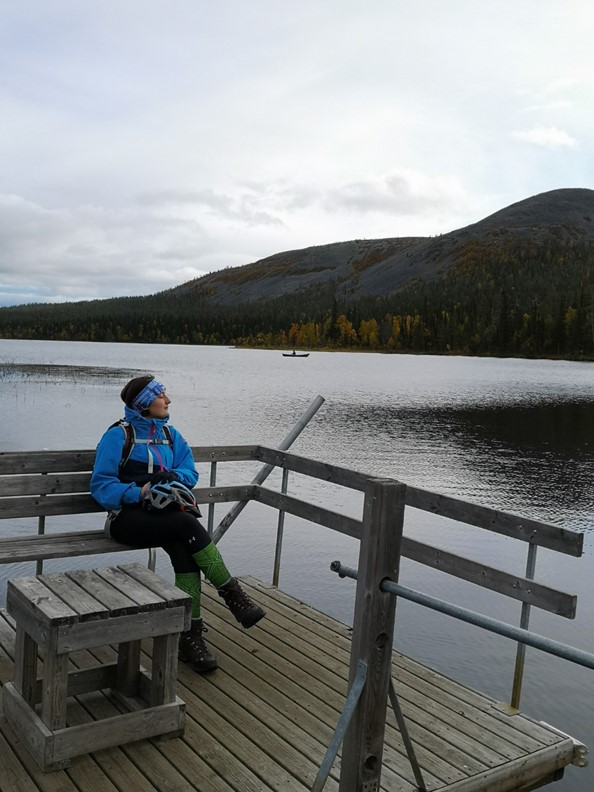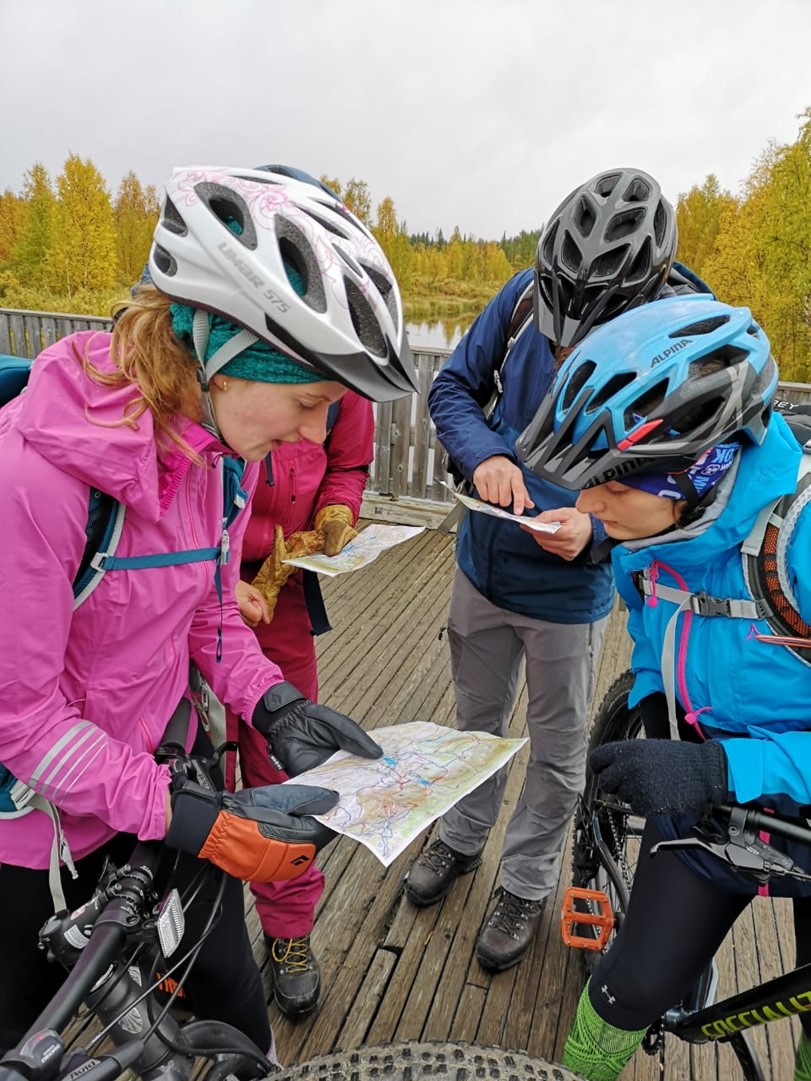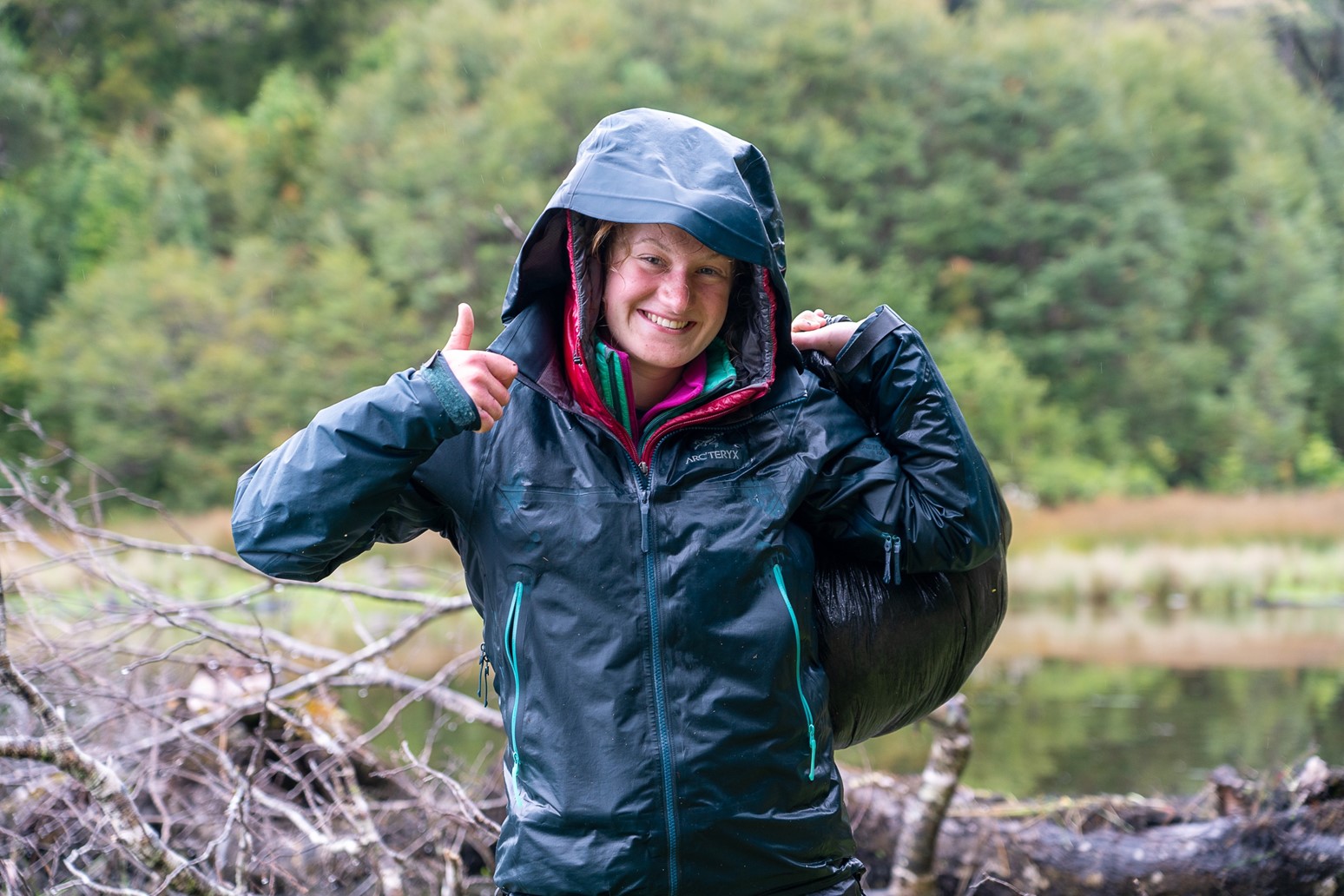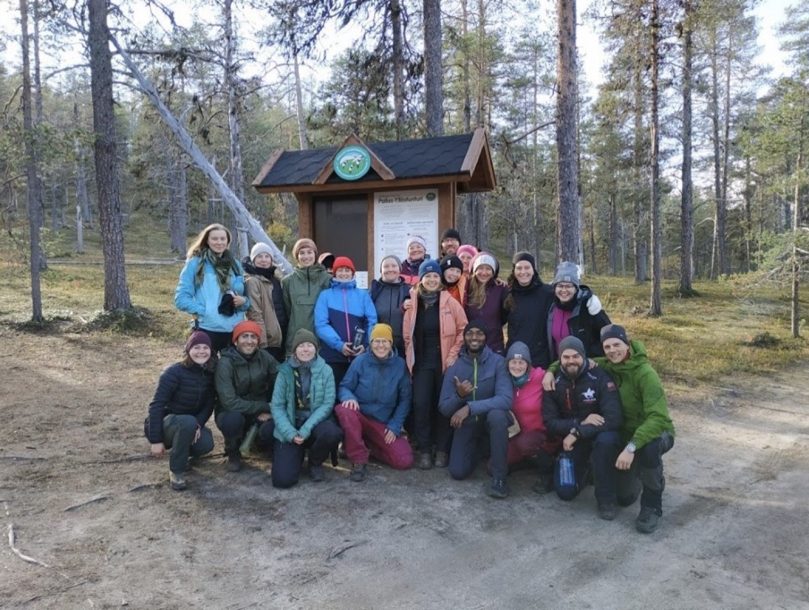Learning is for everyone, wherever we are in the world and at any age. It is a chance to explore and connect with ourselves, the society, environment and nature.
Erika Bjarkadottir & Alexandra Calvey
The time is now and we as the students of Adventure and Outdoor Education at Humak University of Applied Sciences are ready to take in, learn and experience everything in the program. We have and will learn more ways on how adventure education can be used in a wide variety of fields using adventure focused learning for example, recreational, educational, development and therapeutic adventure programming. Adventure education in Humak helps facilitate progress for those that want to get a deeper understanding of the ideas and get the opportunity to teach.

Soaking up the nature (Photo: Erika Eik Bjarkadottir)
As an adventure education group we learn and experience a variety of methods and skills at Humak and in our personal lives. Learning happens on regular basis and we often go through different ways of learning on a daily basis. Formal and the classical way of education is the way of learning that everyone knows through school: when the teacher shows us how to write a plan, prepare and perform when leading an activity. It is an approach to leading, repetition and cognitive memory which is all used to allow us to reach correct outcomes and a predefined goal. There is also non-formal education when we go for activities that are not frame aimed for educational purposes for example, playing floorball after school with our friends.
We can have different goals and/or a common goal, to hit the ball in the goal before your rival team does or just having fun by spending time with friends. There is a learning outcome through trial and error (experiential learning), we develop mentally, socially and physically throughout the activity. With more experience we gain better understanding of ourselves and others. Informal education is the most used method in human life, we learn without realizing it and no one can measure it except ourselves. A good example of this is our personal experience before the studies started; we went to find a lake near Kiljava campus. After a two hour walk a funny moment occurred when we realised that the lake we were walking around was the wrong lake! This experience quickly taught us to watch the surroundings nature and get a better understanding of the area.

Where should we go now? (Photo: Erika Eik Bjarkadottir)
Educational adventure programming aims to understand new ideas, improve knowledge of old methods, or becoming aware of unknown needs through adventure. Educational adventure programming can change the way you think and allows you to see life’s problems with a fresh perspective. You gain new attitudes and then transfer those attitudes to your daily life. The National Outdoor Leadership School (NOLS) is one of the educators in the front line of adventure education. I went on a 3-month expedition hosted by them and returned with a completely different perspective on life.
This expedition required me to have a good tolerance for adversity and uncertainty. For example, at one of the campsites we stayed at it was my job to check the tide line to set up the tent. I found the low tide line, the high tide line, but forgot to check storm tide line. For some reason the tide was a lot higher than usual, which of course resulted us in waking up at 11 pm with all our gear and tent soaking wet. We boiled water to help us keep warm and then managed to fit 8 people in a 4-man tent that didn’t get wet. This experience taught me to not worry about little inconveniences that are out of my control that come into day-to-day life.

Sasha is still smiling after being chased and caught by the tide (Photo: Oscar Manguy)
In conclusion, these methods and more are used in adventure and outdoor education in different ways. There are so many things one can do to develop and learn in the social, physical and mental environment for educational purposes. Despite this, Adventure education is not about what you do but how you do it and use the skills you learned. By trying new things in a new environment, with new people, failing and then trying again you become a better version of yourself. As first year students, we are still very new to the programme and we look forward to getting to know Adventure education in greater detail further down our studies and personal experience!
Further reading and more information:
nols.edu/en/
www.docs.hss.ed.ac.uk/education/outdoored/dissertation_rubens.pdf
medium.com/@ecoleglobale101/types-of-education-formal-informal-and-nonformal-aee0495004a9
counselling-directory.org.uk/memberarticles/some-thoughts-on-outdoortherapy
researchgate.net/publication/51518683_Adventurebased_programming_Exemplary_youth_development_practice
sciencedirect.com/science/article/pii/S0149718915300094
learnupon.com/blog/formal-and-informal-learning/
medium.com/@ecoleglobale101/types-of-education-formal-informal-and-nonformal-aee0495004a9


